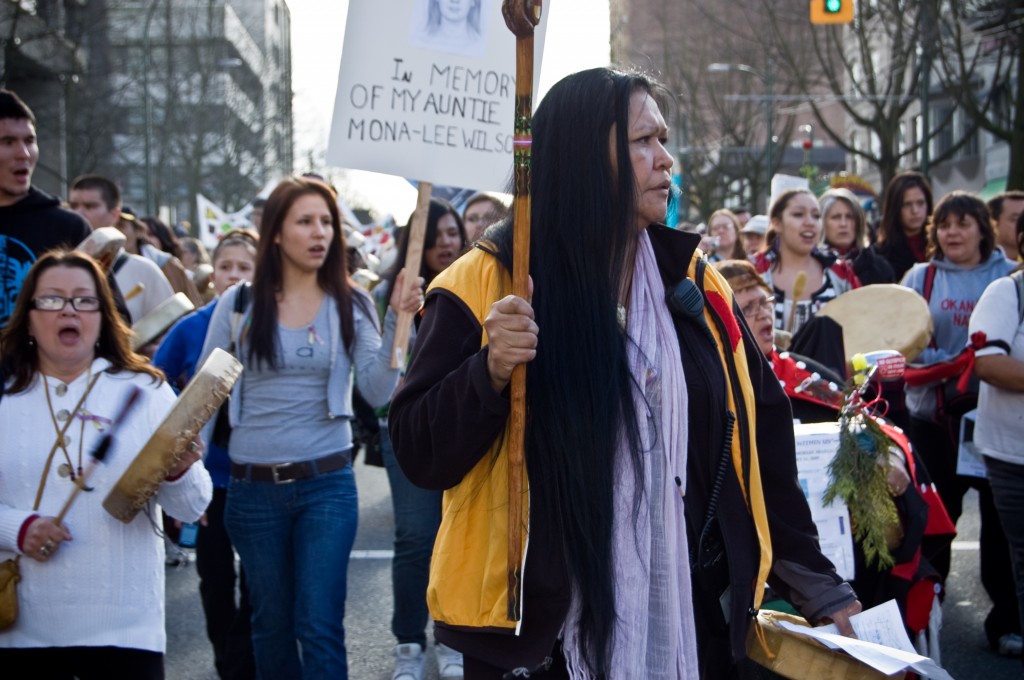Should an Aboriginal woman head BC’s missing women inquiry?

Aboriginal people in two western Canadian cities have demanded their needs be met by some of their own when it comes to safety and security.
In Winnipeg, hundreds of residents in the city’s North End have signed a petition calling for an all-Aboriginal urban policing unit for their neighborhood, writes the Winnipeg Free Press. Read on for the tepid police response.
And, in Vancouver, there are passionate “calls for an Aboriginal woman to lead the upcoming provincial inquiry into missing women,” reports the Georgia Straight. Check out the piece to see what the current non-Aboriginal male inquiry chair had to say about that.
Meanwhile, let’s conduct an experiment: if, through some sudden bolt of inspiration, the BC government agreed with such calls for Aboriginal female leadership for the inquiry, who would you nominate for the position? Post your suggestions below.
[ Photo courtesy of nofutureface ]


I’ll start off the list: Mary Ellen Turpel-Lafond. Her bio includes the following credentials: “Saskatchewan Provincial Court… Administrative Judge [since] 1998… has also worked as a criminal law judge in youth and adult courts, with an emphasis on developing partnerships to better serve the needs of young people in the justice system, particularly sexually exploited children and youth … Turpel-Lafond was a tenured law professor at Dalhousie University Faculty of Law, and taught law at the University of Toronto, the University of Notre Dame and other universities … She holds a doctorate of law from Harvard Law School, a master’s degree in international law from Cambridge University, a law degree from Osgoode Hall, and a bachelor of arts degree from Carleton University.”
If anyone could do the job it would be Viola Thomas hands down! She is a true advocate for Aboriginal women who has been relentless in lobbying and bringing issues facing Aboriginal women to the forefront.
The important piece would be to allow her to choose her team, as she knows the women and the political arena.
Absolutely an Aboriginal women is required to lead this inquiry. It is quite impossible for a non-Aboriginal male to fully understand the Aboriginal epistimology, and ontology that is required to create real systems change to positively effect this issue. Also, as a male there would be engendered resistance given the subject matter. Perspective and a deep understanding of the issues are required to uncover the root causes, to understand and resolve the complex issues that contribute to this horror, an understanding of systems/ systemic racism to design a process that is culturally relevant, and to envision long-term meaningful and relevant change.
http://www.missingwomeninquiry.ca/obtain-report/
Here’s the report.